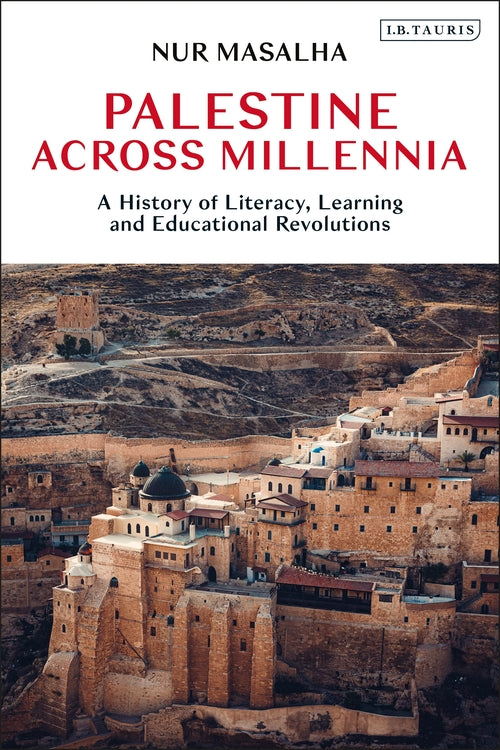Description
Condition: BRAND NEW
ISBN: 9780755642953
Format: Trade paperback (UK)
Year: 2022
Publisher: Bloomsbury
Description:
In this magisterial cultural history of the Palestinians, Nur Masalha illuminates the entire history of Palestinian learning with specific reference to writing, education, literary production and the intellectual revolutions in the country. The book introduces this long cultural heritage to demonstrate that Palestine was not just a 'holy land' for the four monotheistic religions Islam, Christianity, Judaism and Samaritanism rather, the country evolved to become a major international site of classical education and knowledge production in multiple languages including Sumerian, Proto-Canaanite, Greek, Syriac, Arabic, Hebrew and Latin. The cultural saturation of the country is found then, not solely in landmark mosques, churches and synagogues, but in scholarship, historic schools, colleges, famous international libraries and archival centres.
This unique book unites these renowned institutions, movements and multiple historical periods for the first time, presenting them as part of a cumulative and incremental intellectual advancement rather than disconnected periods of educational excellence. In doing so, this multifaceted intellectual history transforms the orientations of scholarly research on Palestine and propels current historical knowledge on education and literacy in Palestine to new heights.
ISBN: 9780755642953
Format: Trade paperback (UK)
Year: 2022
Publisher: Bloomsbury
Description:
In this magisterial cultural history of the Palestinians, Nur Masalha illuminates the entire history of Palestinian learning with specific reference to writing, education, literary production and the intellectual revolutions in the country. The book introduces this long cultural heritage to demonstrate that Palestine was not just a 'holy land' for the four monotheistic religions Islam, Christianity, Judaism and Samaritanism rather, the country evolved to become a major international site of classical education and knowledge production in multiple languages including Sumerian, Proto-Canaanite, Greek, Syriac, Arabic, Hebrew and Latin. The cultural saturation of the country is found then, not solely in landmark mosques, churches and synagogues, but in scholarship, historic schools, colleges, famous international libraries and archival centres.
This unique book unites these renowned institutions, movements and multiple historical periods for the first time, presenting them as part of a cumulative and incremental intellectual advancement rather than disconnected periods of educational excellence. In doing so, this multifaceted intellectual history transforms the orientations of scholarly research on Palestine and propels current historical knowledge on education and literacy in Palestine to new heights.

